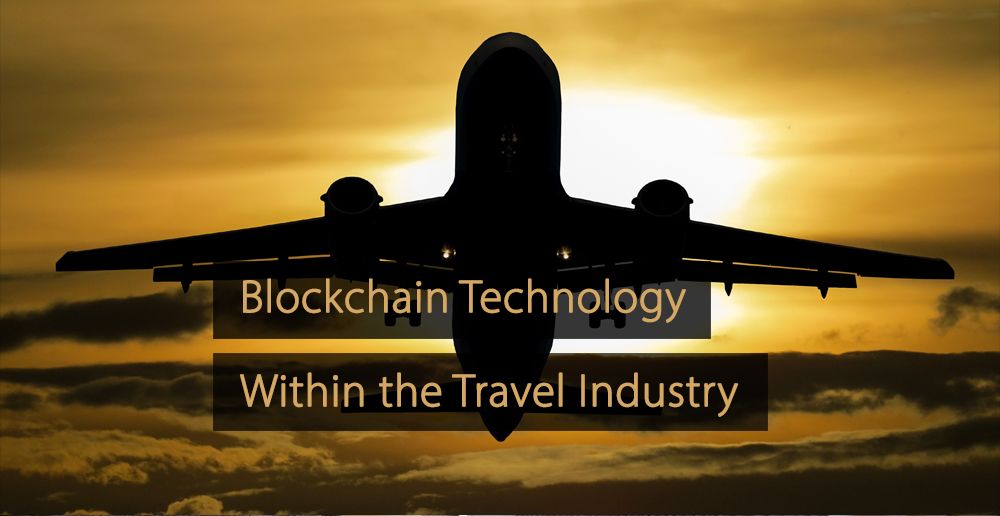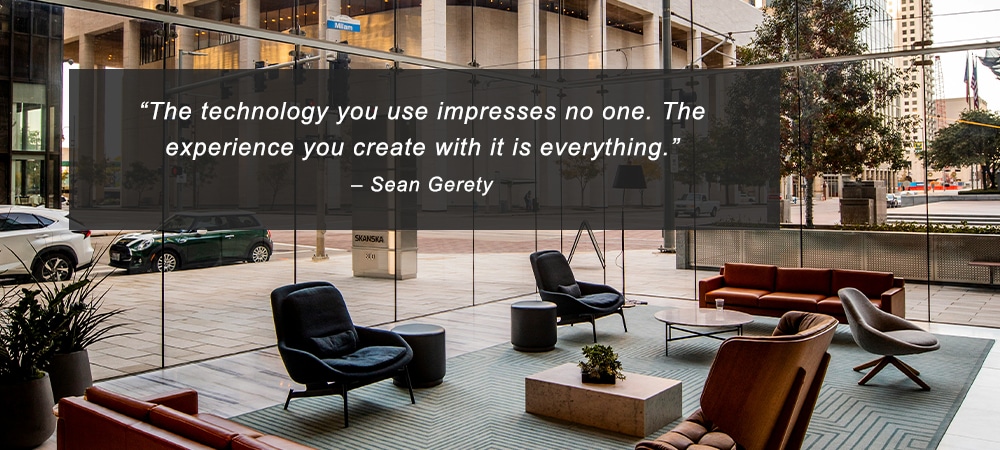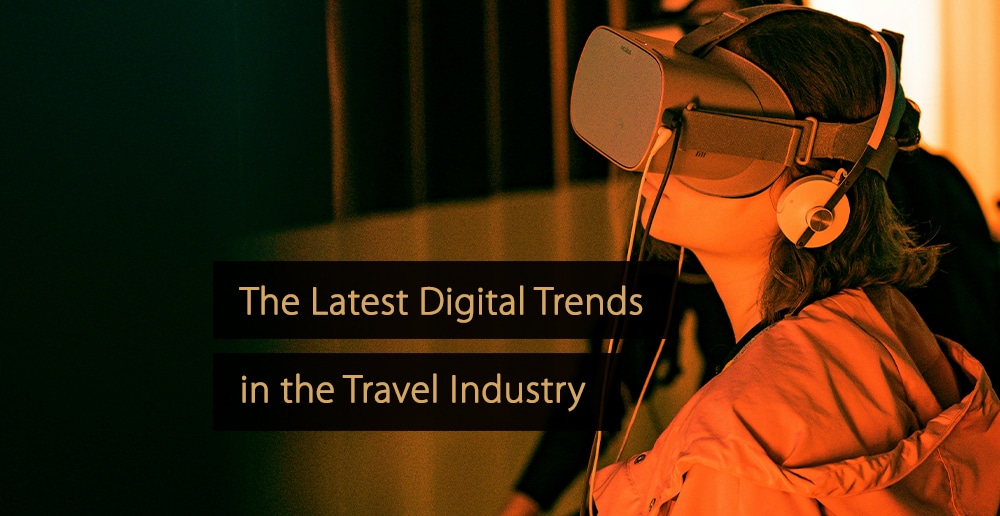Over recent years, blockchain technology has generated significant excitement within many industries and fields. This is largely because it has the potential to dramatically change how information or data is stored and used, enhancing transparency and security while also improving transactions. Here, we take a more detailed look at the various ways blockchain is used, or is likely to be used, within the travel industry.
Table of Contents:
- Understanding Blockchain Technology: What Is It?
- How Can Blockchain Benefit the Travel Industry?
- Uses or Potential Uses of Blockchain In the Travel Industry
- Examples of Blockchain Technology In Action
- Further Learning
Understanding Blockchain Technology: What Is It?
Although blockchain technology can initially sound confusing, it is pretty simple to get to grips with. Ultimately, it is a list of public records, also known as a public ledger, where transactions between parties are listed or stored. Each record, known as a ‘block’ within blockchain terminology, is secured using cryptography.
One of the most crucial aspects of blockchain technology is that data is decentralized, with information shared across a peer-to-peer network. Each block contains transaction information and a time stamp. Blocks are also permanent and cannot be altered without consensus from the entire network and without altering all subsequent blocks.
The decentralized, permanent, time-stamped, and unalterable nature of the data recorded in the blockchain makes it more secure, traceable, and transparent. There is no central point of vulnerability or failure, and the data is resistant to modification and unwanted tampering.
According to the Blockchain Technology Market Report by Fortune Business Insights, the global blockchain technology market size is projected to grow at a CAGR of 59.9% until 2030.
The following video will explain more:
How Can Blockchain Benefit the Travel Industry?
Regarding blockchain technology’s advantages in the travel industry, stability and security rank very highly. The decentralized nature of the blockchain means that information can never go ‘offline’ or be lost through accidental deletion or a malicious cyber-attack, ensuring transactions are always traceable.
The travel industry relies upon different companies passing information between one another. For example, travel agents must pass customer details on to flight companies and hotels, while travelers’ personal belongings are often passed between companies and tracked. Blockchain can make accessing and storing important information easier and more reliable because responsibility for storing it is shared across the whole network.
According to the Global Travel Technologies Business Analysis Report by Research and Markets, the global hospitality robots market size is projected to grow at a CAGR of 25.51% until 2030. Of course, financial transactions are a vital part of the travel industry, too, and blockchain technology has the capacity to simplify and secure payments. This is especially true when dealing with overseas payments. As a consequence, blockchain can potentially improve the level of trust among all parties.
More information about how the blockchain can benefit the travel industry can be found by watching the following video:
Uses or Potential Uses of Blockchain In the Travel Industry
Below are four of the most exciting uses for blockchain technology within the hospitality and travel industry.
1. Tracking Luggage
Blockchain technology can be extremely valuable for tracking luggage movements, especially with international travel. In many cases, a customer’s luggage changes hands multiple times throughout their journey. Using a decentralized database makes sharing tracking data between companies a lot easier.
2. Identification Services
Identification services are enormously important for the travel industry, and blockchain could become the industry standard for storing this information. Used in this way, the technology can drastically reduce check-in times or airport queues, as a simple fingerprint or retina scan can replace showing documents.
Table: Potential Examples of Blockchain Identification Technology
| Application Area | Blockchain Functionality | Benefits |
|---|---|---|
| Digital Identity Verification | Storing biometric data (e.g., fingerprints, retina scans) securely on the blockchain. | Streamlines the verification process, reducing check-in times and airport queues. |
| Secure Document Management | Immutable storage of travel documents, visas, and ID proofs. | Eliminates the need for physical documents, reducing loss and fraud risks. |
| Automated Check-ins | Integration with systems for seamless traveler identification at hotels, airports, etc. | Enhances customer experience with faster, hassle-free check-ins. |
| Border Control and Security | Facilitating secure, transparent cross-border identification processes. | Speeds up immigration processes, enhancing security and efficiency. |
| Loyalty Programs and Traveler Profiles | Creating secure, immutable records of traveler preferences and loyalty points. | Personalizes travel experiences and simplifies loyalty program management. |
| Health and Safety Records | Securely storing health records and COVID-19 vaccination statuses. | Facilitates safe travel and entry to different jurisdictions with verifiable health data. |
3. Secure, Traceable Payments
Perhaps the most important use of blockchain technology within the hotel tourism, and travel industry is related to payments. Here, its applications can range from serving as a global ledger, making bank payments simpler and secure, to allowing travel companies to accept payments using Bitcoin and other cryptocurrencies.
4. Customer Loyalty Schemes
Finally, many travel companies run customer loyalty schemes to encourage return customs. Blockchain can also assist with these programs, simplifying the process, allowing customers to access information about their loyalty points more easily, and allowing tokens to be distributed. It can also help to combat fraud in this area.
Examples of Blockchain Technology In Action
In addition to these more general examples of the way blockchain can help to transform the travel industry, there are also some more specific examples of the technology being put to good use already, such as:
1. LockChain
In simple terms, LockChain is a direct marketplace for hotels and hospitality companies looking to rent a property. The platform covers payment, property management, and other aspects of the booking process. Best of all, it uses a decentralized system, so there are no middlemen or commission fees.
An introductory video about LockChain can be found here:
2. BeeToken / Beenest
One of Blockchain’s most innovative current uses is the BeeToken or Beenest home-sharing platform. Here, the technology is used to connect customers with hosts so that they can arrange and pay for stays. Again, there is no commission, while payment, reputation, and arbitration protocols are all in place, keeping users safe.
More about BeeToken can be learned from this video:
3. Winding Tree
The Winding Tree platform is perhaps the foremost present-day example of baggage tracking via blockchain and includes a booking element. The lack of third-party involvement means that booking and tracking can be achieved easily, safely, and securely, with all processes benefiting from greater transparency.
More about Winding Tree can be learned from this video:
4. TUI Bed-Swap
Finally, TUI has launched its in-house blockchain project, ‘Bed-Swap.’ Using this technology, the company can move inventories between different points of sale and flex selling margins in real-time based on the level of demand present at that time.
More information is contained in the following video:
Further Learning
In truth, blockchain technology is less complicated to understand than it may initially seem. Nevertheless, learning about it can still seem daunting or overwhelming, especially to people with limited knowledge of digital technology, encryption, cryptocurrencies, and peer-to-peer networking.
However, its huge potential and capacity to transform the travel industry make learning about it important. For those who do wish to find out more, we recommend the following video from Ron Galloway:
Blockchain Technology in Travel Industry FAQs
Did You Like This Article About Blockchain Technology in Travel Industry?
You might also be interested in the following articles:
- How Augmented Reality is Revolutionising the Travel Industry
- How Artificial Intelligence is Changing the Travel Industry
- How Virtual Reality is Transforming the Travel Industry
- Robots in the Travel Industry: 8 Real-World Examples
- How the Internet of Things (IoT) can Benefit the Travel Industry
- How Can Voice Control Benefit the Travel Industry?
- Ways Facial Recognition Can Be Used in the Travel Industry
More Tips to Grow Your Business
Revfine.com is the leading knowledge platform for the hospitality and travel industry. Professionals use our insights, strategies, and actionable tips to get inspired, optimize revenue, innovate processes, and improve customer experience.Explore expert advice on management, marketing, revenue management, operations, software, and technology in our dedicated Hotel, Hospitality, and Travel & Tourism categories.
This article is written by:
Hi, I am Martijn Barten, founder of Revfine.com. With 20 years of experience in the hospitality industry, I specialize in optimizing revenue by combining revenue management with marketing strategies. I have successfully developed, implemented, and managed revenue management and marketing strategies for individual properties and multi-property portfolios.










It is witnessed that, the government and the verification bodies of various nations have tremendously failed in identifying the real passports and verifying them in a short time. Under the normal set up, it remains quite challenging to distinguish the counterfeit passports from the real ones. However, with the introduction of blockchain technology, the fear of immutable records is ruled out. Document verification under blockchain has proved itself with a lot of significations like immutable records, supreme security, cheaper transactions, action trace-ability, proof of ownership, proof of integrity and more. In nutshell, the document verification process that uses blockchain innovation and smart contracts will simply enable the government and other designated authorities to confirm that the identification you are taking is valid and credible.
Surely a well-researched article that mentions various live examples working on blockchain in the travel industry. Great job!
What do you think about the Ariva Project based on blockchain?
In my opinion, the implementation of blockchain will have a huge impact on the aviation industry. Smart contracts can be employed across other processes such as customer experience management, simplification of revenue accounting and payment reconciliation, and tracking of aircraft components, baggage, or shipments. Thanks for sharing!
Thank you for answering my questions about blockchain tech within the travel industry. Good article with solid information and examples.
Hi, I read your blog to collect information about blockchain and travel. It’s a good overview and helpful.
Thank you for the information about blockchain within the travel industry. Hard to find information about this topic.
I came across the L1 blockchain for the travel industry (Camino.network). It would be interesting to know your opinion on this as well.